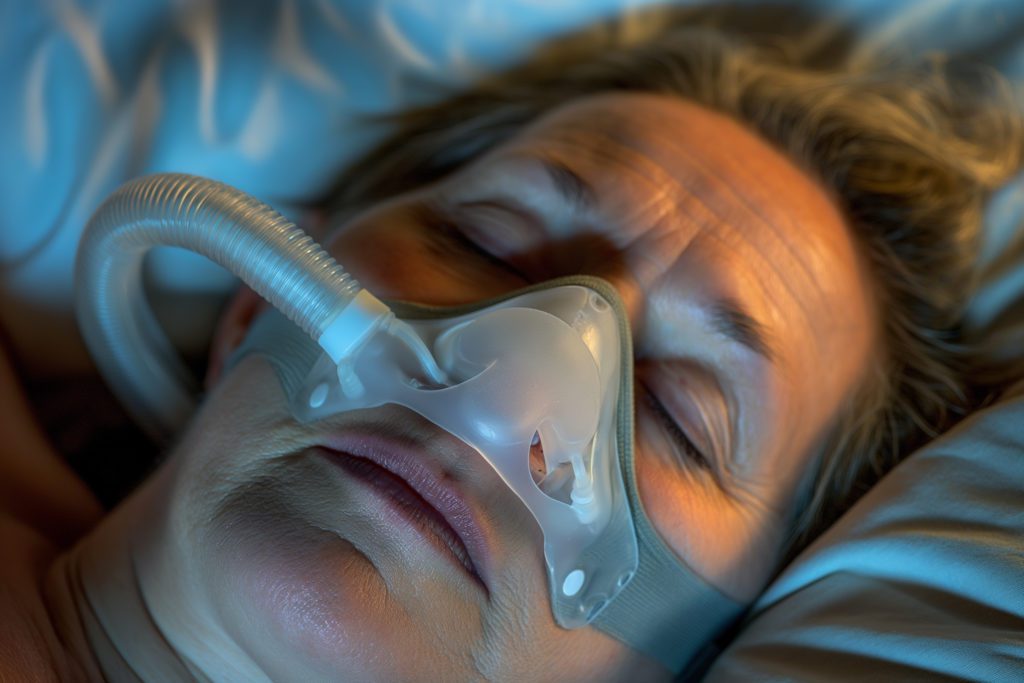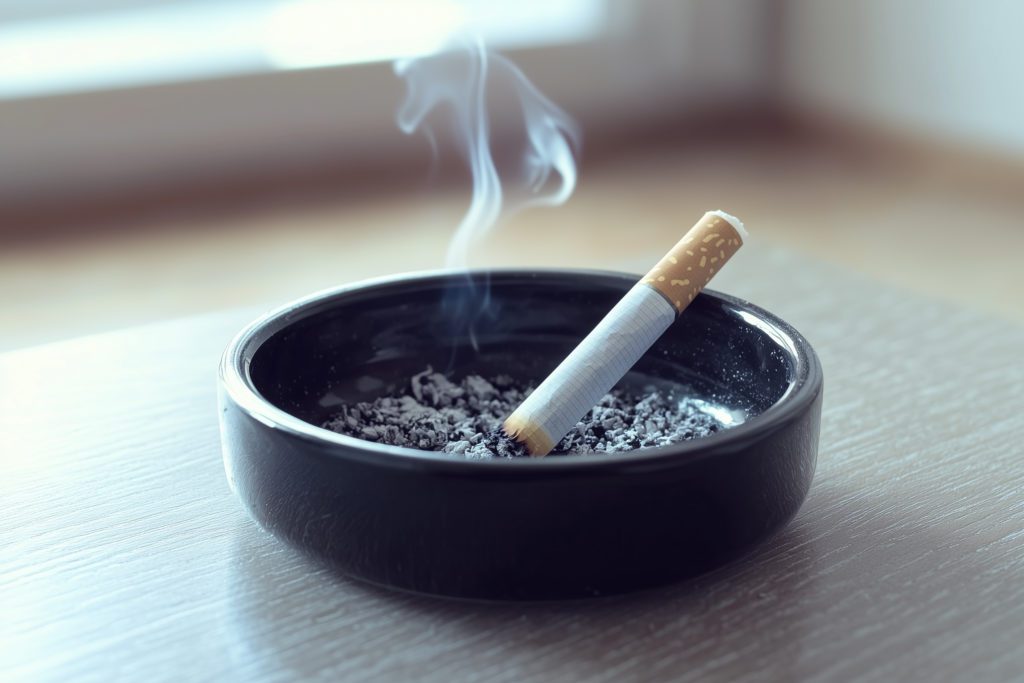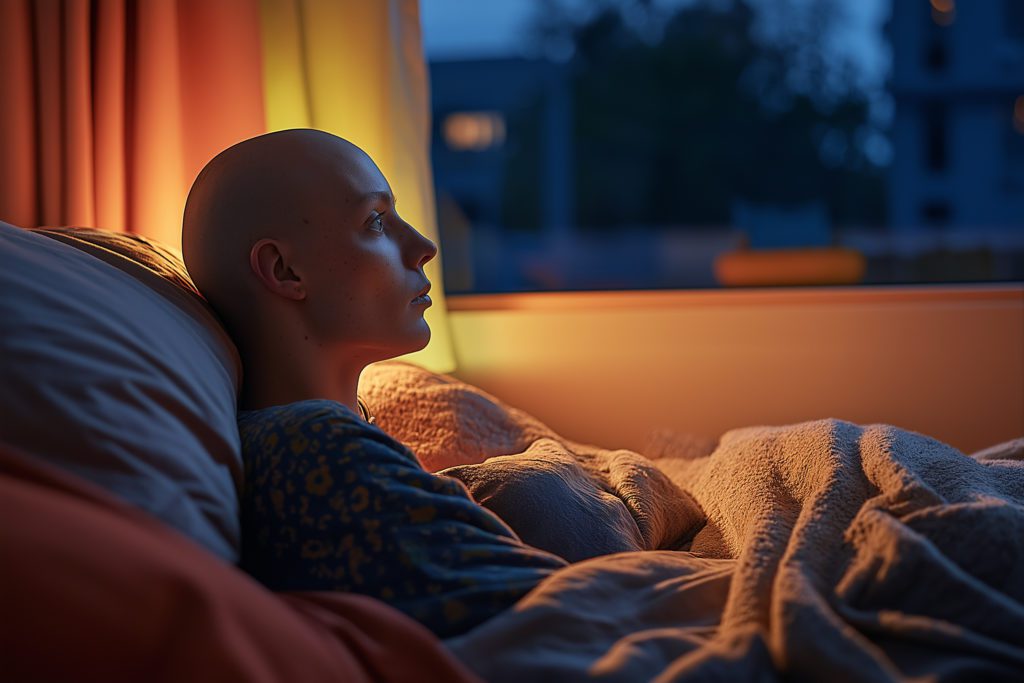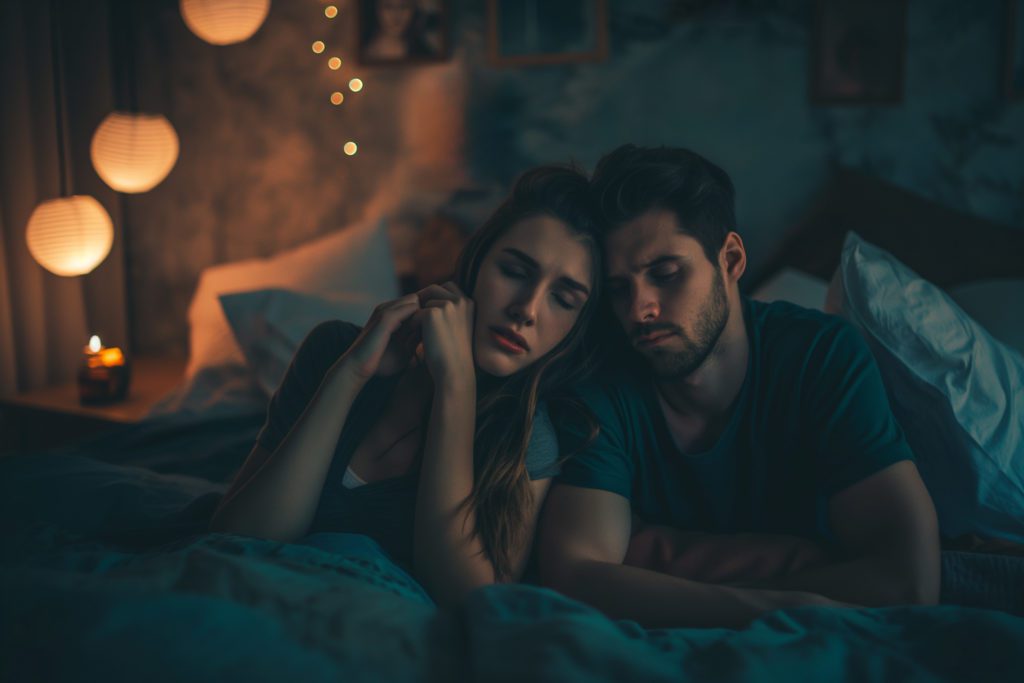
The Effect of Sleep Positions on Headaches
Morning headaches can result from stomach sleeping or having an unsupportive pillow. Learn of sleep tips that support your neck and prevent headaches.

Are you waking up with a headache? It may be because of the position that you sleep in.
Stomach sleeping is the sleep position that is the most likely to lead to a headache because of the harsh angle it places your neck in for the entire night. So, if you wake up with a headache and are a stomach sleeper, it may be time to adjust your sleeping position,
However, morning headaches can be caused by more than your sleeping position. They may be from your head not having enough support, or they may come from a reason not at all related to the way you sleep.
How Can Sleep Positions Cause Headaches?
When we go to sleep at night, we’re more focused on getting comfortable than considering the consequences of our sleep position. However, the way we sleep can significantly influence how we feel in the morning, especially if we wake up with muscle tightness or a headache, so it’s a consideration worth making.
Headaches, in particular, can result from our sleeping position. Specifically, if you sleep in a way that causes misalignment in the neck or places the neck in an abnormal position, it can lead to a headache.
For example, sleeping on your stomach causes you to turn your neck at a 90-degree angle and hold it there throughout the night, a position that can cause tense neck muscles. When the muscles in the back of your neck and head tighten, tension headaches can occur.
Side and back sleepers may also be at risk, though, if their head doesn’t have enough support. When there is a lack of support, the head and neck can fall into an unusual position, which can cause tension in the muscles, leading to a headache in the morning.
When it comes to the best sleep position to prevent headaches, it’s generally recommended to avoid stomach sleeping—both side and back sleeping are better options so long as you have the right amount of support.
Other Sleep Causes of Headaches
It’s not always your sleep position that is to blame—other sleeping habits may be behind your morning headache.
Sleep Apnea
Sleep apnea is a sleep disorder in which someone experiences periods of stopped breathing during their sleep, which causes them to rouse from sleep numerous times during the night. Morning headaches are a common symptom of sleep apnea, with one study finding that 29% of those with sleep apnea reported morning headaches.
While the exact cause of sleep-apnea-induced headaches is unclear, it’s suspected that they occur because of the loud snoring that is also common in those with sleep apnea. Along these same lines, even those who only snore (without having sleep apnea) can have morning headaches to a similar extent—23.5% in one study.
If you have a history of migraines, psychological distress, or insomnia, you may be more likely to have morning headaches if you snore.
Sleep Loss
Sleep is crucial for your well-being, and if you miss out on sleep because an event had you up late or you struggle with nightly insomnia, a morning headache may be the consequence.
Other sleep disorders that commonly result in sleep deprivation are circadian rhythm disorders, which develop when your body becomes misaligned with its circadian rhythm. This misalignment of the sleep-wake cycle can cause insufficient sleep, which may trigger a headache.
Sleep Bruxism
If your sleep is soundtracked by crunching, grinding, or popping sounds, you may have sleep bruxism. This condition, also known as teeth grinding, can cause tension in the muscles of your jaw, which can radiate up to your temple and cause a headache.
Sleep Tips To Prevent Headaches
If you’re looking to prevent headaches, give these sleep tips a try:
- Nurture your head. The position of your head is important while you sleep, and your pillow can help you achieve it. Side sleepers, in particular, should use a pillow that is high enough to span the distance between the shoulder and the head. Some people may need to use two pillows to achieve this, especially if you have broad shoulders.
- Use a supportive pillow. Ensure that the pillow you use can handle the weight of your head and keep it in the correct position. If you struggle, there are pillows specially made for side or back sleepers.
- Tuck your chin. To prevent strain at the base of your head, which can evolve into a headache, tuck your chin slightly down while you sleep.
Get More Sleep, Prevent Headaches
A common cause of morning headaches is a lack of sleep, so improving your sleep hygiene and getting more sleep each night may be what is needed to stop your morning headaches.
Start by setting and following a consistent sleep schedule. Get up and go to sleep around the same time each day, even on weekends. This helps to keep your circadian rhythm regular, which can make falling and staying asleep easier.
As a part of your schedule, create a relaxing bedtime routine. Not only can this help you to get ready for bed, physically and mentally, but it can also relieve your stress and any tension you may be holding in your neck and shoulders.
Getting exercise regularly during the day can also help you fall asleep easier, but make sure you’re not exercising too close to bed—it may keep you up instead.
Finally, ensure that your bedroom environment is ideal. The environment most conducive to sleeping is dark, cool, and quiet, so close your blinds, turn on a fan, and try out Pillow’s sound library to drown out any disrupting sounds.
When you improve your sleep, adjust your sleep position, and use a supportive enough pillow, you’ll find that you’re well on your way to preventing morning headaches through their most common causes. If they persist, though, it may be time to visit a doctor—your headaches could be because of a sleep disorder, and your doctor can help you begin treatment so that you can sleep better and wake up pain-free, with no morning headache to be felt.
FAQ
Can certain sleep positions alleviate existing headaches?
Yes, sleeping on your back with proper neck support can relieve headaches by keeping the spine aligned and reducing strain on neck muscles. This position helps prevent nerve compression and blood vessel constriction, which can trigger headaches. Using a supportive pillow ensures the head stays in a neutral position.
How do pillow type, height, and quantity affect sleep posture and headaches?
The wrong pillow height or using multiple pillows can strain the neck, causing tension headaches by misaligning the spine and restricting blood flow. A single, well-designed pillow—such as an orthopedic or memory foam pillow—supports the neck’s natural curve, keeps the head level with the spine, and helps prevent headaches by reducing muscle strain and pressure points.
Can poor sleep posture lead to other health issues besides headaches?
Yes, poor sleep posture can contribute to various health issues beyond headaches, such as chronic neck and back pain, stiffness, and reduced mobility. It can also lead to sleep apnea and snoring, especially when sleeping on your back. This position can cause the tongue and soft tissues to collapse into the airway, obstructing breathing and reducing oxygen intake, which may result in fatigue, concentration problems, and even heart-related complications. Side sleeping is generally recommended to maintain spinal alignment, reduce airway blockages, and improve breathing, helping to prevent both snoring and sleep-related headaches.
How does side sleeping affect the likelihood of developing headaches?
Side sleeping can promote better spinal alignment and reduce the likelihood of tension headaches. However, improper positioning, such as using an unsupportive pillow or curling up too tightly, can strain neck muscles and lead to discomfort. Ensuring the head is level with the spine is key.
How does the firmness of a mattress influence sleep posture and headache prevention?
A mattress that is too soft can cause the spine to sink, leading to misalignment and muscle strain. On the other hand, an overly firm mattress may create pressure points, increasing discomfort. A medium-firm mattress offers balanced support, helping to keep the spine properly aligned
Are there specific exercises to reduce sleep-related headaches?
Neck and shoulder stretches, such as chin tucks and gentle rotations, can reduce muscle stiffness and tension that contribute to sleep-related headaches. Strengthening exercises improve posture, helping to support the head and neck during sleep and reducing the likelihood of headaches.
Can certain sleep positions trigger migraines?
Yes, sleeping in a position that strains the neck, such as on the stomach, can aggravate sensitive pressure points and contribute to migraines. Poor positioning can lead to restricted blood flow and nerve compression, which are common triggers for migraine sufferers.

Written by
Jessica G
Medical writer freelancer who has written hundreds of articles on varying topics. Masters of Engineering degree in Biomedical Engineering.
Download Pillow
Get help
Press & News
Legal
Connect
X (Twitter)
Company
Copyright © Neybox Digital Ltd.



